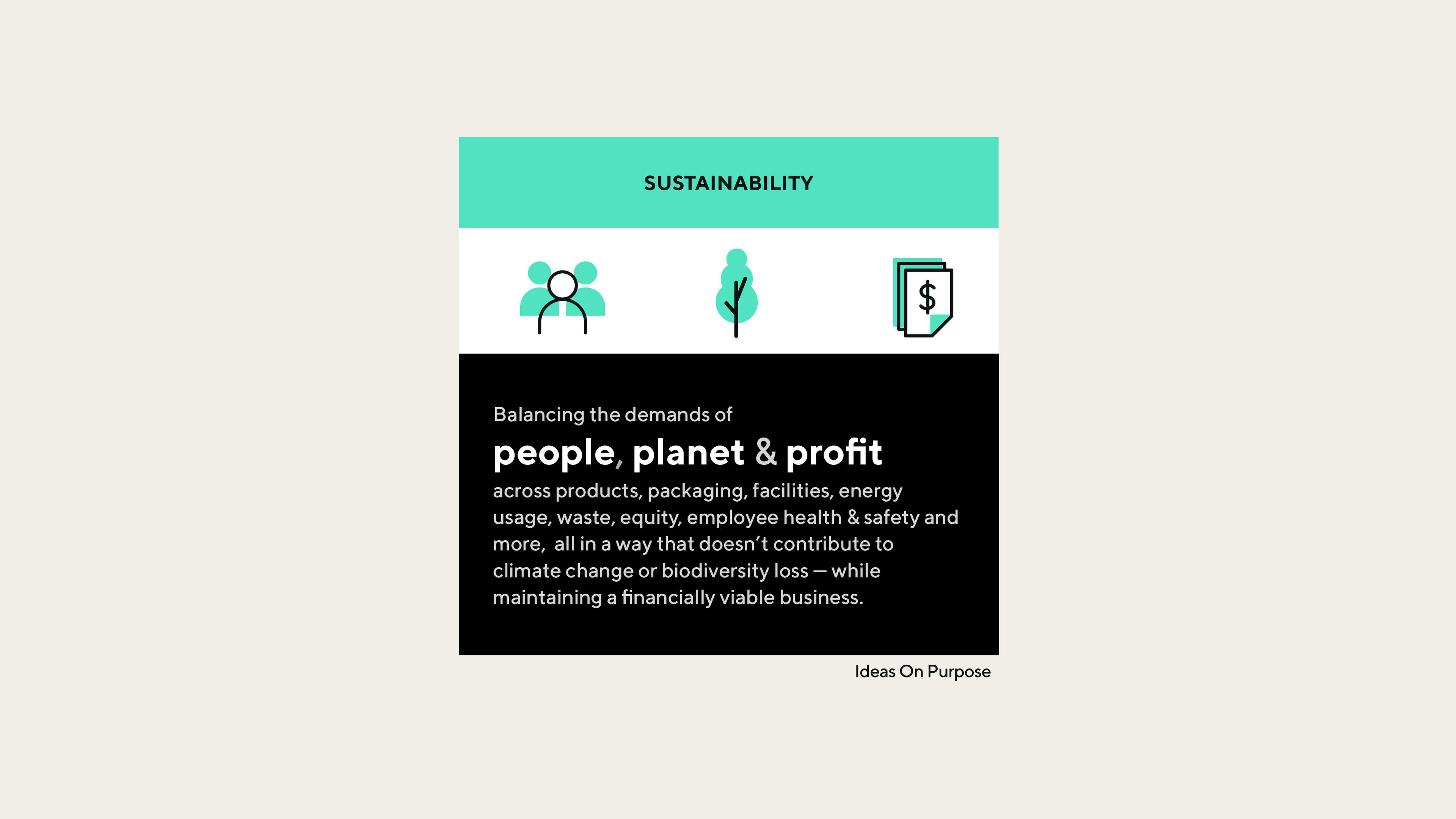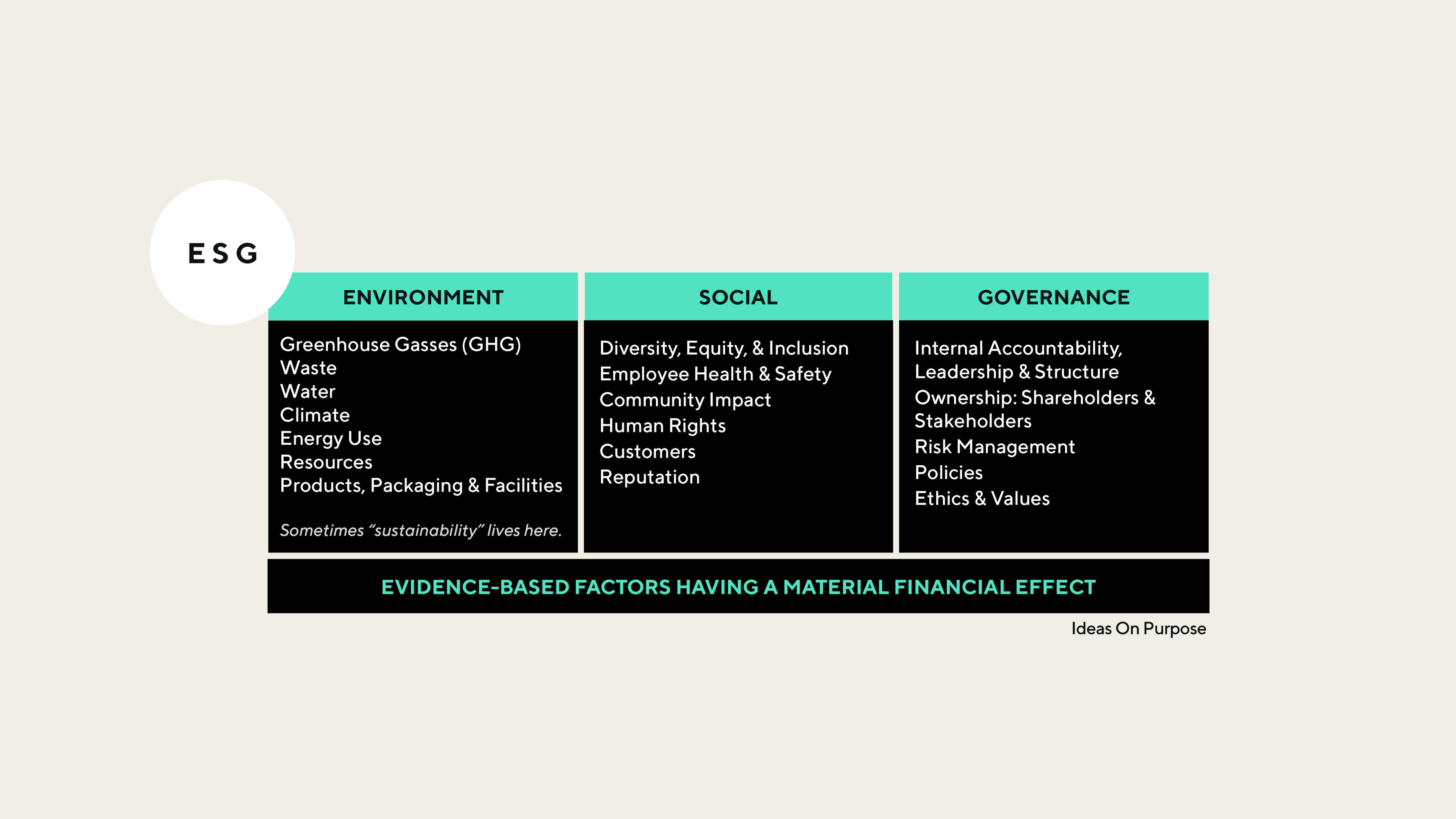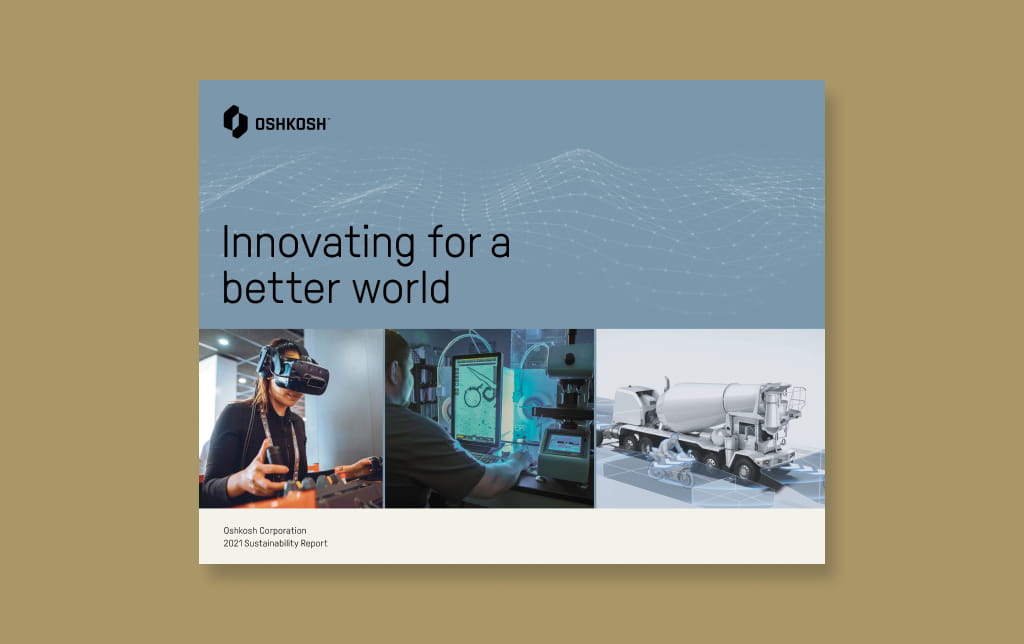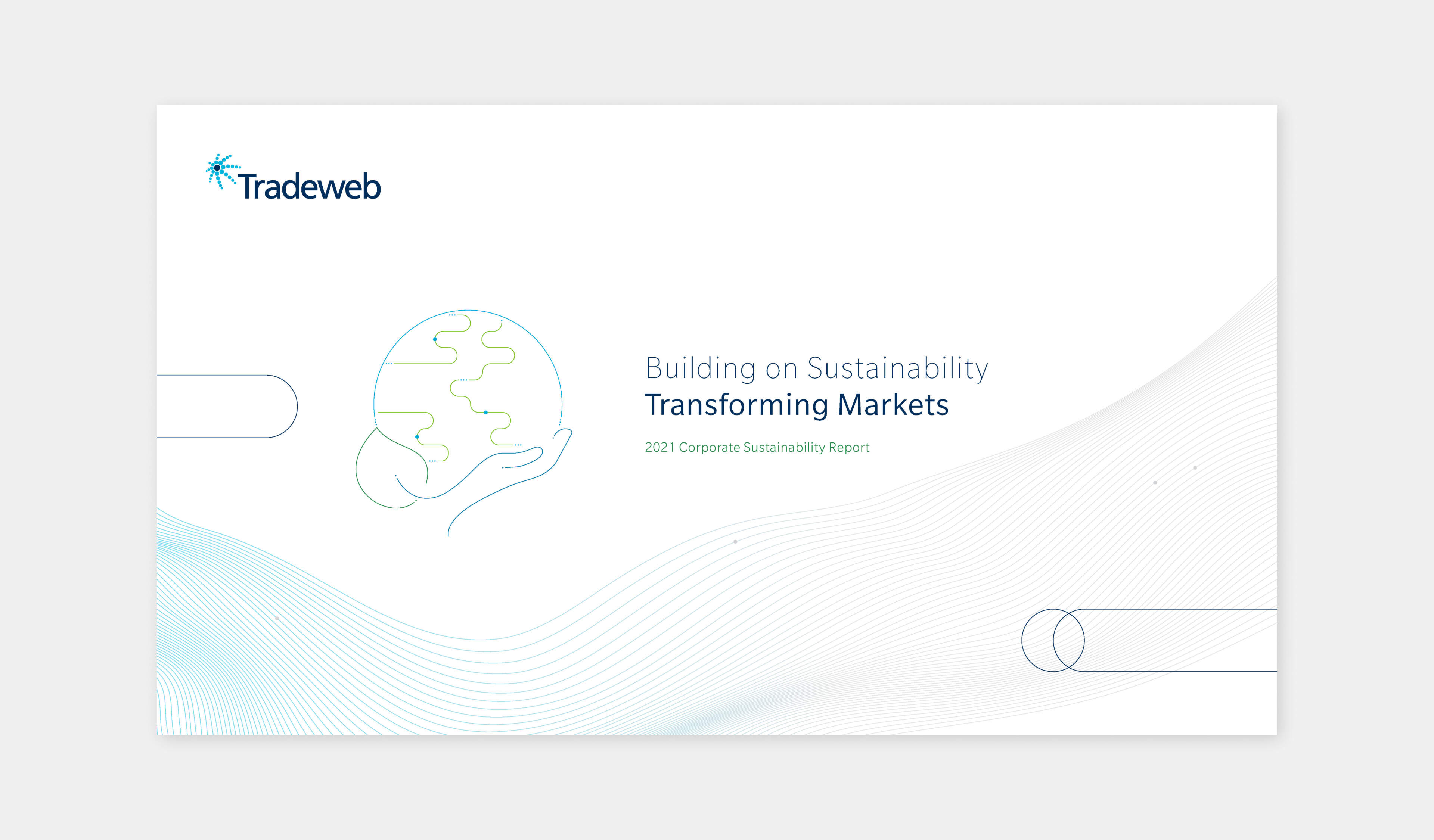The Difference Between ESG and Sustainability and Why It Matters
Many people use ESG and Sustainability interchangeably. The meanings are similar but boast distinctly different actions and outcomes. Ensuring common understanding within your organization will help align people and resources to common goals and make communications easier.
What is Sustainability?
Sustainability is a broad idea that encompasses all a company’s efforts to minimize its negative impact on the world. The concept is often associated with the “triple bottom line” (people, planet, profit), and governance is not necessarily included. It has been referred to as an “inside-out” view and it’s complex in that sometimes it is equated with environmental and climate issues alone, but more so aims to ensure that businesses operate in an ethical, responsible, and sustainable manner. But because there is no universally accepted definition in this context, “sustainability” is often used generally for any goal or goals that relate to a company’s efforts that may help them be a better organization. Without that universal definition, some find it tough to get alignment on measurable goals and accountabilities. However broad, for many organizations, defining sustainability for internal and external audiences can still help position priorities, align on appropriate reporting frameworks, and guide their overall journey toward sustainable practices. This clear understanding supports telling a consistent, aligned sustainability story in stakeholder communications.

What is ESG?
ESG—Environment, Social, Governance—is a data-driven and investor-focused framework. The three dimensions are distinct and have measurable aspects tied to independent raters and rankers. There is a heavy emphasis on managing risk, reputation, operations and capital across these dimensions. Sometimes it’s referred to as an “outside-in” approach. Reporting is a central feature, since the financial impacts on the business are front and center. ESG investing has experienced a meteoric rise, and companies everywhere are embracing these concepts as value creators. (McKinsey) For public companies, telling a credible ESG story is a must-have and, at a minimum, issuing an annual report on progress is expected.ESG—Environment, Social, Governance—is a data-driven and investor-focused framework. The three dimensions are distinct and have measurable aspects tied to independent raters and rankers. There is a heavy emphasis on managing risk, reputation, operations, and capital across these dimensions. Sometimes it’s referred to as an “outside-in” approach. Reporting is a central feature since the financial impacts on the business are front and center. The topic of ESG and ESG investing has experienced a dramatic rise over the last few years due to its ties and potential ties to regulation, and companies everywhere are embracing these concepts as value creators. (McKinsey) For public companies, telling a credible ESG story is a must-have and, at a minimum, issuing an annual report on progress is expected.

What’s the difference?
Simply put, sustainability is the umbrella that ESG falls under and contributes to. A commitment to sustainable business practices lies a practical and detail-oriented foundation for ESG. ESG is explicitly measured with well-defined standards set by lawmakers, investors and ESG reporting organizations (e.g. GRI, TCFD), while sustainability is often defined by the company for the betterment of the planet. The overall risk and materiality profile of ESG is a key differentiator and goes beyond sustainability.
The Take-away
Whether you embrace Sustainability or ESG as the organizing principle, it’s important to establish shared understanding within your organization and with external audiences. This clarity has positive implications; helping to establish what is important to the company and to your external stakeholders, so you know what to measure, support and communicate. Consistency in your communications reinforces all the efforts the company is making and increases understanding across all stakeholders.
Importantly, such efforts are already having a massive impact. And the profile of sustainability and ESG is rising fast and coming under a microscope from global regulators. Expect much more discussion on this topic.



How Ideas On Purpose Can Help
For over 20 years, IOP has been helping companies of all sizes with purpose-driven communications, including corporate reporting, and ESG and Sustainability storytelling. Our strategy, content, digital and creative teams are ready to help you define and tell your ESG/Sustainability story and meet your reporting goals. Check out some of the stakeholder-pleasing sustainability reports and impact communications IOP has created, and feel free to email us, we’re happy to discuss the possibilities.
Photo by Michael Olsen on Unsplash